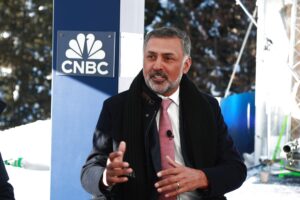
The Individual Retirement Account and the 401(k) plan are coming under attack.
These tax-advantaged savings accounts, which date back to the Employee Retirement Income Security Act of 1974, let individuals save thousands a year toward their golden years with certain tax advantages. They are now the cornerstone of America’s retirement system. Investors, for example, held $24 trillion in assets in such accounts at the last count.
But not everybody is happy. There are now multiple criticisms that these accounts as they are current structured are unfair, even a “fraud,” and a giveaway for “high earners.” The main argument is that these accounts have ended up being tax shelters for rich people rather than retirement assistance for the middle class.
My colleague Bob Powell wrote about this recently. He covered many of the key issues. I don’t want to rehash those here. But I want to raise one additional issue that needs airing and which I think critics of IRAs and 401(k) plans have also overlooked.
That issue: Income volatility.
In short, this year’s “high earner” may not be next year’s high earner. Actually, there is a very good chance they won’t be. And that makes all the difference to retirement saving.
If we exclude “high earners” each year from tax breaks on retirement savings, we will create a perverse situation: Someone with a steady income of, say, $70,000 a year will get help saving, while someone who earns the same $700,000 over 10 years in a string of booms and busts won’t.
This would be an excellent way of making a bad middle-class retirement situation even worse.
Some of those criticizing 401(ks) and IRAs have already retired. So there will be no loss to them, no matter what happens to these plans. And others criticizing these plans work in occupations that enjoy legal shelter from too much volatility.
For example, some of those criticizing retirement tax breaks for “high earners” are lawyers, college professors (or college law professors).
Lawyers are protected from undue labor competition by a legally-enforced high barrier of entry: Law schools and bar exams. In most states you aren’t even allowed to sit for the bar exam unless you have attended (and paid $200,000 to) an “accredited” law school, and spent three years in class.
Tenured college professors, meanwhile, are almost impossible to fire (even though their situation these days may not be quite as cushy as Michael Caine in Educating Rita).
Most middle-class workers, even so-called “high earners,” can only dream of this kind of stability.
“Most studies…have found increasing income volatility for American households in general since the 1970s,” reports the Aspen Institute. “The increase in volatility has been the highest for households at each end of the income distribution (both low-income and top earners),” it adds.
Nearly half of all U.S. households saw an income change of around 25% from one year to the next, it found. And about a quarter of households saw a change of 50%.
A study by Pew found that a sixth of households earning more than $85,000 a year saw an income drop of 25% or more in a single year.
And that’s just within short periods. When you look across full careers, many middle-class careers look like Egypt in the Book of Genesis: A string of “fat” years, when money pours in, followed by a string of lean ones, when it pours back out.
There is no reason to believe this phenomenon is temporary or is going to abate. Quite the reverse. Silicon Valley and the Nasdaq teem with young tech companies whose entire reason for existence is to “disrupt” existing paid industries. That means disrupting jobs.
In most cases they aim to replace lots of well-paid office workers with technology and “apps” along with fewer, lower-paid grunts. Sure, maybe that’s a good thing for the economy overall, as it lowers costs, makes things more efficient, and produces economic growth. But it also makes middle-class careers yet more volatile.
All this means that saving for retirement is going to be harder. When you face rolling career crises throughout your career, and you have to go back to school in middle age, then saving money for your future self, 30 years hence, is going to seem less of a priority. But it is increasingly important. We are living longer: Life expectancy at age 65 is about 4 years longer for men today than it was 40 years ago, and 2 years longer for women. Meanwhile fewer middle-class workers have traditional pension plans that pay them an income till they die. And Social Security is under increasing pressure, political as well as financial.
If high earners who have retired feel they have too much money in their own retirement accounts, let them assuage their guilty consciences by giving to the needy. They can even mail Uncle Sam a check. And if people want to argue that “high earners” (however defined) are getting too good a deal, let them make the case for higher tax rates. But 401(k) and IRA plans are among the few steady things middle-class workers can hang on to in an increasingly turbulent economy.










